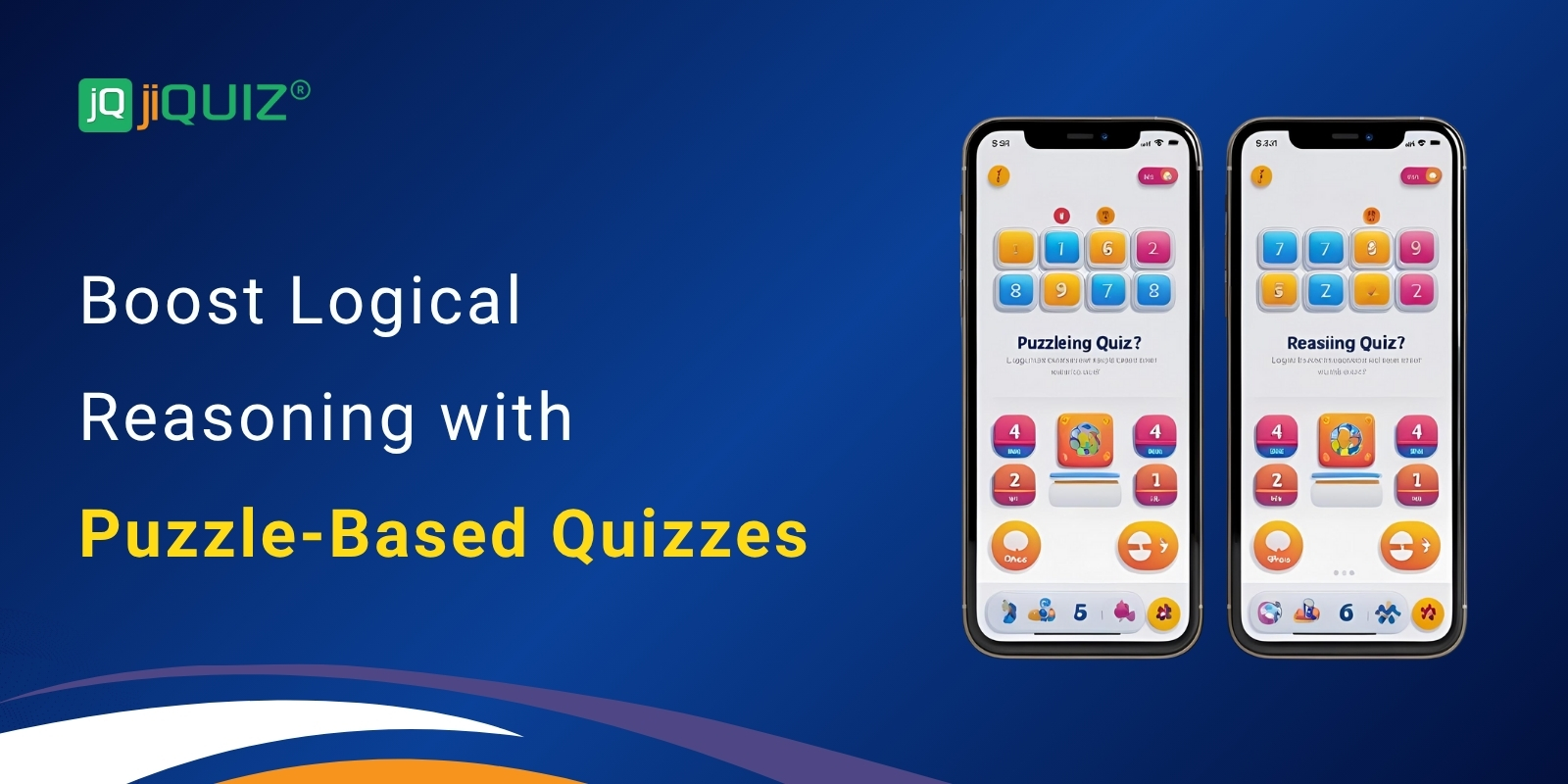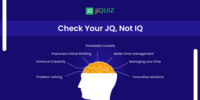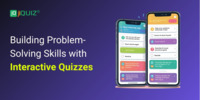- Jun 26, 2025
Share this post on:

Logical reasoning – it sounds complex, doesn’t it? But at its heart, it's about clear, rational thinking. It's the ability to analyze information, identify patterns, draw conclusions, and solve problems effectively. Whether you’re tackling a challenging work project, navigating a complex social situation, or simply trying to understand a news article, strong logical reasoning skills are invaluable. And the surprising, fun way to improve them? Puzzle-based quizzes!
This isn’t about rote memorization or recalling facts. It’s about how you think. In this post, we’ll explore why logical reasoning matters, how puzzle quizzes can significantly enhance it, different puzzle types and their specific benefits, and how to integrate these quizzes into your routine for maximum impact.
Why Logical Reasoning is Your Secret Weapon
Before diving into the “how,” let's solidify the “why.” Logical reasoning isn’t just an academic skill; it’s a life skill. Here's why it's so crucial:
- Improved Decision-Making: Logical reasoning helps you weigh options, evaluate potential outcomes, and make informed choices, reducing impulsive or irrational decisions.
- Enhanced Problem-Solving: When faced with a challenge, logical reasoning allows you to break it down into manageable parts, identify root causes, and develop effective solutions.
- Critical Thinking: It equips you to critically evaluate information from various sources, identifying biases, fallacies, and inconsistencies. This is increasingly important in a world overflowing with information.
- Better Communication: Logical reasoning helps you articulate your thoughts clearly, construct compelling arguments, and understand the reasoning behind others’ perspectives.
- Increased Creativity: Surprisingly, logical thinking isn’t restrictive. It provides a framework for exploring new ideas and approaches to problems. By understanding how things work, you can find innovative ways to manipulate and improve them.
How Puzzle-Based Quizzes Work Their Magic
Puzzle quizzes are a fantastic way to engage your logical reasoning skills because they force you to think strategically. They’re not about recalling information; they’re about the process of deriving the answer. Here's what makes them so effective:
- Active Engagement: Unlike passively reading or listening, puzzles demand active participation. You're not just receiving information; you're actively manipulating it to find the solution.
- Pattern Recognition: Many puzzles are designed to test your ability to identify patterns – sequences, relationships, and logical connections. This skill is transferable to countless real-world situations.
- Deductive and Inductive Reasoning: Puzzles often require both deductive reasoning (drawing conclusions from general principles) and inductive reasoning (forming general conclusions from specific observations).
- Error Detection: Many puzzles involve identifying contradictions, inconsistencies, or flaws in presented information. This sharpens your critical thinking skills.
- Fun and Motivation: Let’s be honest, learning can be tedious. Puzzles make the process engaging and enjoyable, fostering a positive attitude towards mental exercise.
A Puzzle Playground: Types of Quizzes and Their Reasoning Benefits
Not all puzzles are created equal. Different types challenge specific aspects of logical reasoning. Let's break down some popular categories:
- Sudoku: A classic number puzzle, Sudoku primarily hones deductive reasoning and constraint satisfaction. You're given a grid and must fill it with numbers based on specific rules. The focus is on systematically eliminating possibilities.
- Logic Grids (Einstein's Riddle): These puzzles present a series of clues about a group of individuals and require you to deduce their characteristics. They're excellent for developing deductive reasoning and process of elimination. They force you to organize information and systematically test hypotheses.
- Lateral Thinking Puzzles (Brainteasers): These puzzles often have unconventional solutions and require you to think outside the box. They are the champions of creative problem-solving and challenging assumptions. The trick is often realizing that the obvious answer is the wrong one.
- KenKen: Similar to Sudoku, but with an added layer of mathematical operations. KenKen builds on deductive reasoning and introduces numerical reasoning and mathematical problem-solving.
- Nonograms (Griddlers): These puzzles use numbers to indicate the lengths of blocks of filled cells in a grid. They improve spatial reasoning, pattern recognition, and logical deduction.
- Chess & Checkers: These strategy games are fantastic for strategic thinking, planning, forecasting, and understanding consequences. They teach you to anticipate your opponent’s moves.
- Word Logic Puzzles (Crosswords, Anagrams): These puzzles enhance vocabulary, pattern recognition, and linguistic reasoning. They require you to manipulate language and find connections between words.
- Sequence Puzzles: These puzzles require you to identify the next number or symbol in a sequence. They test your ability to discern underlying patterns and relationships.
Integrating Puzzle Quizzes into Your Routine: A Practical Guide
Okay, you're convinced. Now how do you actually do it? Here’s a roadmap for incorporating puzzle quizzes into your life for maximum benefit:
- Start Small: Don't jump into the deep end. Begin with puzzles that are slightly challenging but not overwhelming. Success builds confidence and motivation.
- Variety is Key: Rotate between different puzzle types to engage different areas of your brain. A diet of only Sudoku can be beneficial, but a variety will produce more well-rounded logical thinking skills.
- Set Realistic Goals: Even 15-30 minutes a day can make a significant difference. Consistency is more important than intensity.
- Embrace Failure: Getting stuck is part of the process. Don’t get discouraged. Analyze your mistakes and try a different approach. Understanding why you were wrong is just as valuable as getting the right answer.
- Find Resources: The internet is a treasure trove of puzzle quizzes. Here are a few starting points:
- Sudoku.com: For Sudoku puzzles of all difficulty levels.
- LogicLike: A website dedicated to logic puzzles and brain games.
- Braingle: A website with a vast collection of puzzles and brain teasers.
- Puzzle Baron: Another great resource for various puzzle types.
- Make it Social: Puzzle quizzes can be a fun activity to do with friends or family. Discussing the solutions can provide different perspectives and deepen your understanding.
- Challenge Yourself: As you become more comfortable, gradually increase the difficulty level. Seek out puzzles that push your boundaries.
- Reflect on Your Progress: Periodically assess how your puzzle-solving abilities have improved. Consider how these skills are transferring to other areas of your life.
Beyond the Puzzle: Transferring Skills to Real-World Applications
The beauty of logically-based puzzles is that the skills you hone in those games directly translate to real-world situations. Think about:
- Analyzing Data: Identifying patterns in data is just like solving a sequence puzzle.
- Negotiating: Anticipating your opponent’s moves, like in chess, can be invaluable.
- Project Management: Breaking down a complex project into manageable steps mirrors the approach to a logic grid.
- Decision-Making in Complex Situations: When faced with multiple variables and potential outcomes, logical reasoning provides a framework for making informed choices.
Conclusion: Unlock Your Potential with Puzzles
Boosting logical reasoning doesn’t have to be a chore. By embracing the fun and challenge of puzzle-based quizzes, you can sharpen your mind, enhance your problem-solving abilities, and unlock your full potential. So, dive in, choose your puzzle, and start your journey to a more logical and insightful you!









